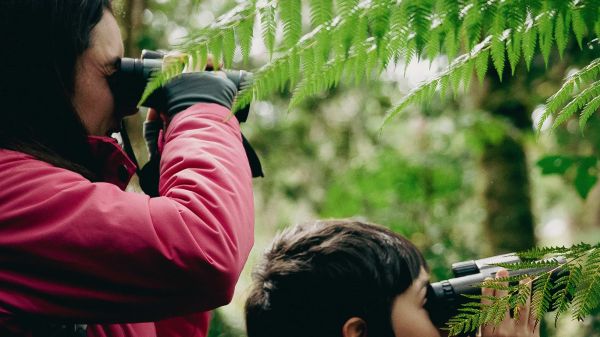Nonformal Learning

Six recent environmental education studies reveal effective approaches for fostering nature connection and environmental action across different settings and age groups. National parks provide diverse climate change resources emphasizing local impacts, while elementary school birding clubs build scientific literacy through authentic experiences. Science centers effectively motivate climate action by balancing scientific evidence with solutions and engaging families, whereas citizen science yields the strongest outcomes when participants engage in the full scientific process rather than just data collection. In urban settings, experiences of awe and solitude in parks foster deeper nature connections than traditional recreation, and preschool community gardens not only improve children's nutrition knowledge but empower them as agents of change for family food choices. Collectively, these studies highlight the value of experiential, place-based, interactive approaches that connect environmental knowledge to personal relevance and concrete action.
For more information, see the eePRO blog post: Fresh Takes on Nonformal Environmental Education
National parks across the United States offer diverse, accessible climate change educational resources that emphasize place-based learning and connect climate impacts to local environments.
This research shows how afterschool birding clubs provide elementary students with authentic scientific experiences that build literacy, social skills, and environmental awareness while fostering confidence and connection to nature.
This study demonstrates how science centers effectively motivate climate action by balancing scientific evidence with solutions, engaging families, and providing interactive experiences that connect knowledge to behavior.
Citizen science projects yield the best environmental education outcomes when participants engage in multiple aspects of the scientific process beyond data collection, including planning, analysis, and reporting results.
This article explores how urban parks can foster deeper connections to nature through experiences of awe and solitude, which provide more meaningful engagement than traditional recreation activities.
This research shows how preschool community gardens enhance children's nutrition knowledge, social development, and confidence while empowering them to influence their families' food choices in healthier directions.
